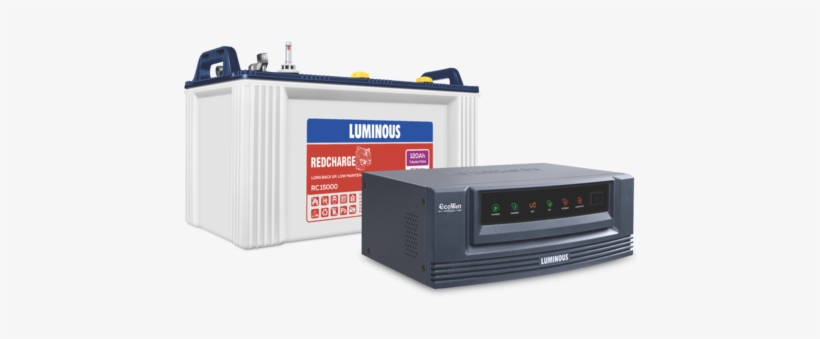Powering the Future: Unleashing the Potential of UPS Batteries
Powering the Future: Unleashing the Potential of UPS Batteries
Blog Article

In an increasingly digital world, the demand for reliable power supply solutions has never been greater. As businesses and individuals alike depend on technology to operate smoothly, the importance of uninterrupted power sources becomes clear. This is where UPS batteries come into play, ensuring that critical systems remain powered during outages and fluctuations. With advancements in battery technology and renewable energy integration, UPS batteries are not just a backup solution; they are a key component in powering the future.
The potential of UPS batteries extends beyond mere emergency power. They serve as a bridge to a more sustainable energy landscape, facilitating the use of renewable energy sources and reducing reliance on traditional power grids. As we explore the capabilities of UPS batteries, we uncover their integral role in various applications, from data centers to home offices. Understanding their advantages and innovations opens up a world of possibilities for enhancing energy resilience and efficiency.
https://upsplusbattery.ca
The Importance of UPS Batteries
UPS batteries are critical components in today’s technology-driven world. They ensure that essential devices remain powered during electrical outages, thus preventing loss of data and damage to sensitive equipment. With the increasing dependency on technology for both personal and professional use, the reliability of UPS batteries is more important than ever. They serve as a safeguard against interruptions, allowing businesses to maintain operations and individuals to avoid disruptions in their daily activities.
The role of UPS batteries extends beyond just providing backup power. They also contribute to a smoother operation of devices by regulating voltage and providing surge protection. This is particularly vital for servers and networking equipment, where a sudden spike in power can lead to catastrophic failures or data loss. By absorbing fluctuations, UPS batteries help maintain a stable environment for electronic systems, enhancing their lifespan and performance.
Moreover, as renewable energy sources become more prevalent, UPS batteries play a pivotal role in energy management. They can store excess energy generated from solar panels or wind turbines, delivering power when it is most needed. This capability not only promotes sustainability but also ensures a consistent power supply regardless of external conditions. Harnessing the potential of UPS batteries thus represents a significant step towards a more resilient and efficient energy future.
Innovative Technologies in UPS Systems
The advancement of UPS batteries has been significantly influenced by innovative technologies that enhance their efficiency and reliability. Lithium-ion batteries are emerging as a popular choice due to their high energy density and longer lifespan compared to traditional lead-acid batteries. This transition is not only beneficial for minimizing space and weight requirements but also contributes to the overall performance of UPS systems, allowing for quicker charge times and less maintenance.
Another groundbreaking technology in UPS systems is the integration of smart monitoring and management software. By utilizing Internet of Things (IoT) capabilities, these systems can provide real-time analytics and insights into battery health, charging cycles, and overall system performance. This data-driven approach enables businesses to optimize the use of their UPS batteries, reduce downtimes, and avoid failures, ultimately leading to enhanced operational efficiency.
Furthermore, advancements in energy management systems are also transforming UPS technology. These systems are designed to seamlessly integrate UPS batteries with renewable energy sources, such as solar panels. By utilizing intelligent algorithms, energy management ensures that the stored energy is used efficiently, reducing reliance on grid power and lowering operational costs. This synergy between UPS batteries and renewable energy not only supports sustainability efforts but also positions businesses to adapt to the evolving energy landscape.
Future Trends in Energy Storage
As technology continues to evolve, the landscape of energy storage is rapidly changing. One prominent trend is the shift towards more advanced UPS batteries that utilize lithium-ion technology. These batteries offer higher energy density, faster charging capabilities, and longer lifespans compared to traditional lead-acid systems. This transition is not just about enhancing performance; it is also about reducing the environmental impact associated with battery disposal and recycling. Manufacturers are increasingly focused on developing sustainable solutions that will support green initiatives.
Another emerging trend in energy storage is the integration of smart technology into UPS systems. This includes the use of artificial intelligence and Internet of Things (IoT) connectivity to optimize battery performance and monitor health in real-time. Smart UPS systems can predict potential failures, manage energy consumption more efficiently, and improve overall reliability. As businesses and individuals look for ways to maximize uptime and minimize disruptions, the adoption of smart UPS batteries is set to increase significantly.
The future of UPS batteries will also likely see a greater emphasis on modular designs and scalability. As energy demands fluctuate, customizable energy storage solutions will allow users to expand their systems easily based on their specific needs. This adaptability is particularly important in a world where renewable energy sources are becoming more prevalent. By enabling seamless integration with solar and wind energy systems, modular UPS batteries can play a critical role in creating a resilient and flexible energy landscape for the future.
Report this page